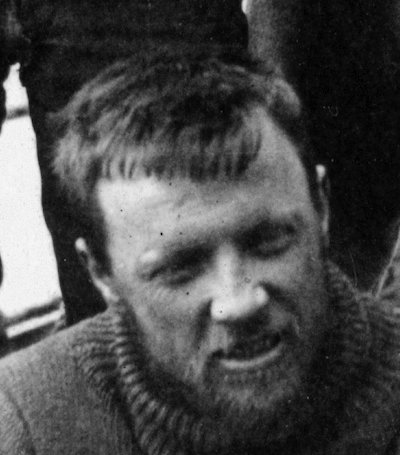John George Hunter
AAE position: Biologist
In their own words
I do sincerely hope to make a success of the biological work, especially as I have come down with special fixing solutions which is more than any other expedition has done.
— John Hunter, diary entry for 12 March 1912.
A University of Sydney science graduate, John Hunter was 23 when taken on by Mawson as a biologist for the main base in Adélie Land. He was to spend a year at Cape Denison, followed by a summer cruise aboard Aurora in the 1913–14 summer.
Hunter’s main task at Cape Denison was to investigate all forms of life, including swimming and bottom-dwelling marine animals and plants (dredged by hand), seals, penguins and other birds, and the micro-organisms that made their home on and inside these creatures. Mawson noted Hunter’s dedication to his task and his ‘fine collection of parasites’.
On his return to Australia Hunter turned to medicine, a career which was to dominate the rest of his life. As a captain in the Australian Army Medical Corps from 1916 to 1918, he served in the 9th Field Ambulance in France and in the 2nd Australian General Hospital in England.
Having qualified as a medical practitioner and undertaking general practice, Hunter became an assistant physician at Sydney and Royal South Sydney hospitals. He also lectured university students on medical ethics.
From 1929 Hunter was full-time medical secretary of the New South Wales branch of the British Medical Association, organising the BMA’s first postgraduate course for medical practitioners and presiding over the official opening of BMA House in Macquarie Street (finally achieving his aim of clearing the debt on the building in 1959).
Hunter taught medical ethics at the University of Sydney (a lecture course described in the Australian Dictionary of Biography as ‘very neat lectures on good manners for medical men’). He was an outstanding organiser; besides his BMA work he was a major in the home militia in World War II, helped to establish the Hospitals Contribution and Medical Benefits funds of Australia, served as Australasian secretary of the World Medical Association and chaired the Australian Council of Social Service. He also served as secretary-general of the Australian Medical Association from 1962 and drafted its code of ethics.
Through the 1940s Hunter was a fervent opponent of the Chifley Labor government’s free health scheme. His successful battle against regulation of medicine won him the 1956 BMA (Australia) gold medal. In 1957 he was appointed CBE.
John Hunter died in 1964.

